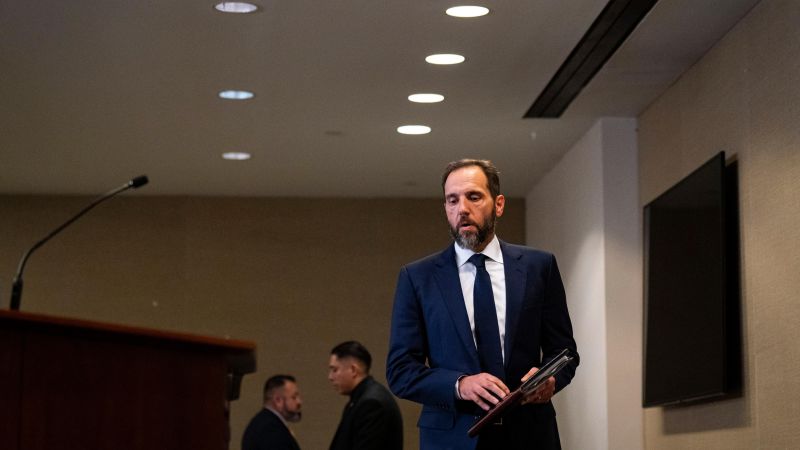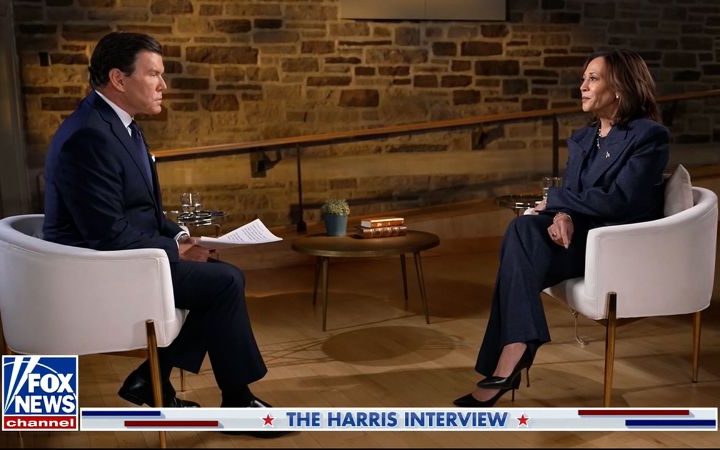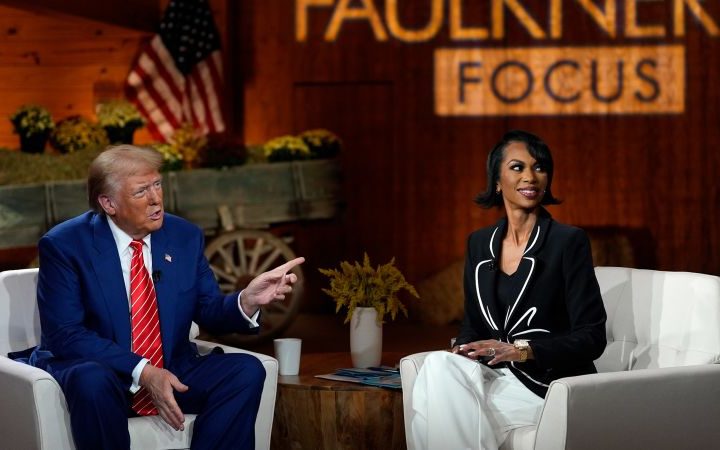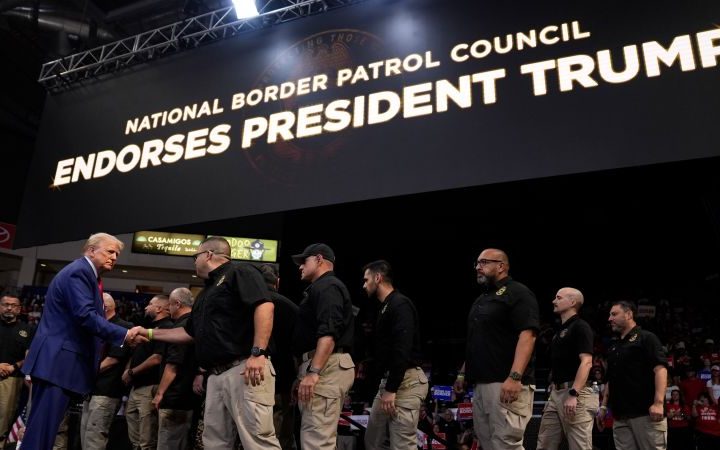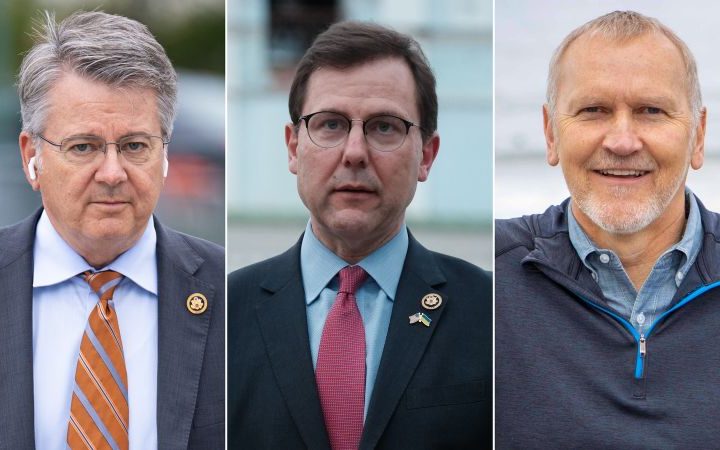Special counsel Jack Smith’s office is defending how the federal government during Joe Biden’s presidency sought to repossess White House records Donald Trump took, and how the case evolved into a federal investigation.
The expansive, 67-page filing offers a detailed retelling of the standoff with Trump as a way to “set the record straight,” Smith’s prosecutors say, on the origins of the Mar-a-Lago documents case, as they fight to keep the case on track for a spring trial.
After the search of Mar-a-Lago, Trump’s Florida estate, in August 2022, federal investigators pursued a “careful and thorough investigation,” seeking information from intelligence agencies, the National Archives and other parts of the federal government before bringing criminal charges against Trump for mishandling documents, the special counsel’s office said.
The prosecutors say Trump’s legal team has attempted to distort the events in his favor – including by claiming he had a security clearance that extended past his presidency. He is seeking to convince a federal judge in Florida to force the Justice Department to give him more documents as evidence in the case from several sensitive parts of the federal government, including the Biden White House, the Department of Energy and the US intelligence community.
Prosecutors’ retelling of the investigation on Friday is based on documents they’ve turned over to Trump’s legal team already that may be used as evidence in the upcoming trial against him, according to the filing.
“Federal agencies confronted, and appropriately responded to, an extraordinary situation resulting entirely from the defendants’ conduct,” the prosecutors wrote.
“The law required that those documents be collected,” the prosecutors also said in the filing.
The dispute of what happened dates to the end of the Trump presidency and early days of the Biden White House, when it became clear to federal government agencies and to Trump’s representatives that boxes of presidential documents were missing.
Specifically, prosecutors say then-White House lawyer Jonathan Su, who worked under Biden, spoke with Trump aides who handled his presidential records post-presidency and with the National Archives, at a time when the groups had to coordinate discussions about missing presidential records.
Trump has tried to claim Su’s involvement – and the role of his successor’s White House in discussions about his presidential records – was improper. But the prosecutors on Friday wrote Trump’s team “not only knew” of the Biden White House being part of the discussion, they also approved of it.
“The White House Counsel’s Office became involved because of the need to consult its personnel about missing Trump Administration Presidential records,” the prosecutors wrote on Friday.
Later, in early 2022, when presidential records from Trump’s White House were shipped back to the National Archives, archivists found classified records among them, prompting them to contact the Justice Department to begin a criminal investigation.
Trump has taken issue with how the DOJ handled the investigation and has accused various agencies of working together to smear him after he left the presidency.
On Friday, the special counsel’s office argued the case’s evolution followed Justice Department protocol, including in how White House employees spoke with DOJ officials.
“The record shows only different government agencies, with specific portfolios and responsibilities, at work to solve an increasingly vexing and concerning problem,” prosecutors said. “The defendants’ legal problems are solely of their own making.”
Smith’s team said that they scoured all records and found no evidence Trump held security clearance after he left office, despite his attorneys claiming he did.
Trump’s attorneys have argued that the former president held the security clearance from the Department of Energy – which works with the nation’s nuclear arsenal – after he left office, which, they said, could support an argument that Trump was acting in a good faith and “non-criminal states of mind relating to possession of classified materials” in Mar-a-Lago.
Prosecutors produced a memorandum from the assistant general counsel in Department of Energy, which stated that Trump did have a high security clearance, called Q clearance, in connection with his “duties” as president, but that “Trump’s clearance had terminated upon the end of his presidency.”
Trump’s name was inadvertently left on the DOE database as having the Q clearance after his term ended, the general counsel wrote in their memo, and was “belatedly updated to reflect that reality” when DOE officials learned of the mistake.
“But even if Trump’s Q clearance had remained active, that fact would not give him the right to take any documents containing information subject to the clearance to his home and store it in his basement or anywhere else at Mar-a-Lago,” prosecutors wrote. “No Q clearance holder has authorization to remove documents from a proper place of storage and keep them for himself. And a Q clearance would not even permit access to, much less offsite possession of, the documents charged in Counts 1-18 and 20-32.”
Additionally, prosecutors produced search results from the Scattered Castles database, which records the security clearances maintained by the Intelligence Community, and from Department of Defense databases. Prosecutors wrote that their searches “yielded no past or present security clearances for Trump.”
The documents are among more than 1.28 million pages of unclassified discovery that prosecutors have given Trump’s defense lawyers in the classified documents case.
Those documents include key records from their investigation, security footage from Mar-a-Lago, information that defense lawyers could use to impeach potential trial witnesses, and records about “secured facilities that could be used to accommodate access to classified information at properties associated with Trump during his presidency.”
The special counsel’s team has also turned over a significant amount of information on the search at Mar-a-Lago on August 8, 2022. That information, prosecutors wrote, includes the FBI operations plan for the search, chain of custody reports and descriptions of evidence seized, CCTV footage from the day of the search, communications obtained from Trump Organization and Mar-a-Lago employees from that day, photographs taken during the search, inventories of the documents found at the property, and the documents that the FBI seized.
Defense lawyers have access to a significant amount of Secret Service records, according to prosecutors, including plans for enhanced security at Mar-a-Lago, records of security breaches at Mar-a-Lago and the fact that “approximately 48,000 guests who visited Mar-a-Lago between January 2021 and May 2022, while classified documents were at the property,” but only “2,200 had their names checked and only 2,900 passed through magnetometers.”
Additionally, prosecutors turned over “all discoverable material from (the National Archives) within its possession” and “all discoverable material stemming from the investigating agents’ contacts with FBI Headquarters.”
In their filing, prosecutors argue that Trump and his co-defendants in the case are not entitled to the internal government communications the former president is seeking as part of discovery, which, they say, are protected by law as work products of the team of prosecutors.
Trump’s attorneys, in a filing in mid-January, sought access to Biden-era White House records and records from the Intelligence Community, arguing that Biden’s administration “took steps to create a false appearance of separation from the investigation.”
Prosecutors, however, shot back, saying that much of the specific requests from Trump’s team “seek evidence from agencies – including NARA, the White House, and the Intelligence Community – that are not part of the prosecution team.”
They added: “No personnel from the National Security Council, the White House Counsel’s Office, the Office of Records Management, or any other White House component participated in any interviews (except as witnesses), presented the case to the grand jury, accompanied prosecutors to any court proceedings, or played any role in the development of prosecutorial strategy.”
Additionally, the Intelligence Community “played no investigatory role in this case,” the filing says, and were therefore not part of the prosecution team.
Smith’s team also says that some of the evidence Trump is looking for either does not exist or isn’t in prosecutor’s possession.
According to the filing, there has not been any communication between prosecutors and Biden or senior White House political officials either about the investigation or otherwise.
“To be clear, the defendants’ requests are predicated on a false narrative,” prosecutors wrote of Trump’s claims that the Justice Department is targeting him for political purposes.
Prosecutors continued: “The investigation and prosecution of this case have been appropriately driven by the facts and the law, not by any form of political bias.”
Smith’s team argued that Trump should also not be allowed to use this claim of selective prosecution as part of his defense at trial because it’s an issue for the judge to decide, not a jury.
“The well-settled proposition,” prosecutors wrote, is “that selective-prosecution claims have no place at trial.”
Read the full article here
